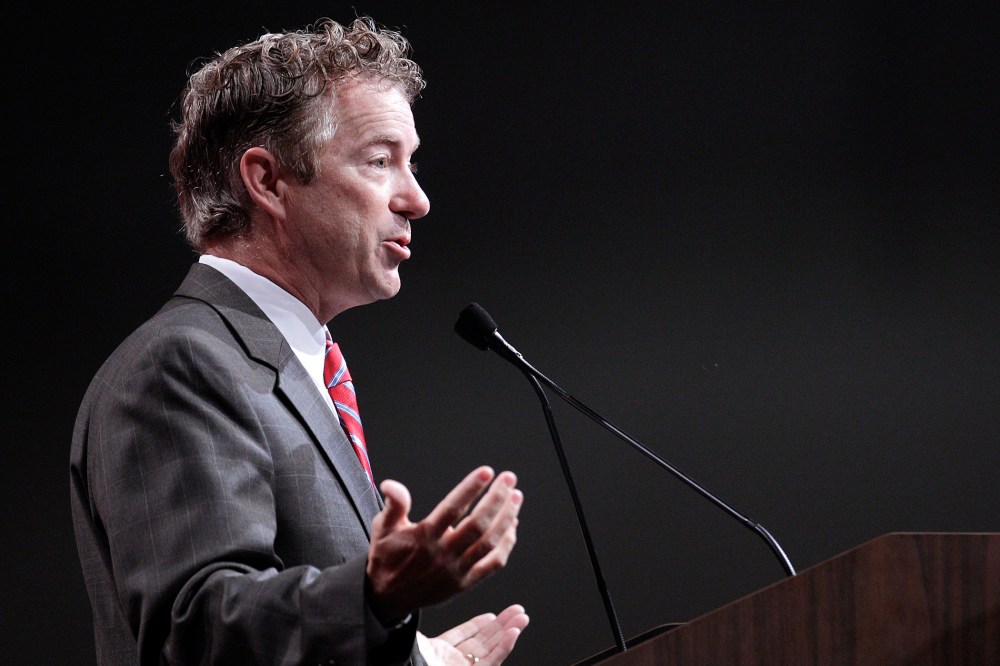Speaking to a historic civil rights group, Sen. Rand Paul on Friday called for new sentencing reforms, expanded voting rights, school choice, and tax cuts for depressed cities.
“I say we take a stand and fight for justice now,” said the Republican senator from Kentucky.
The speech to the National Urban League’s conference in Cincinnati was part of a broader campaign by Paul to engage with minority voters ahead of a likely presidential run. While a number of prominent Republicans have tried to make similar inroads this year, Paul has arguably done the most impressive job by zeroing in on areas of agreement with civil rights groups and then backing them up with speeches and new legislation.
Paul’s intense devotion to conservative beliefs on states’ rights, and some of the more fringe circles that champion the principle, made him an unlikely candidate for this push. During his 2010 Senate campaign, he famously criticized the 1964 Civil Rights Act as a federal overreach and repeated his concerns in a speech to Howard University students last year. But on Friday, he offered his strongest endorsement yet of federal intervention in discrimination.
“Not only do I support the Civil Rights Act and the Voting Rights Act, I’m a Republican who wants to restore a federal role for the government in the Voting Rights Act,” Paul said.
Congress is still considering how — and whether — to fix portions of the Voting Rights Act after the Supreme Court ruled that the act’s formula for monitoring state laws was unconstitutional. Many Republicans are resistant to changes because they believe it would hinder their ability to pass new voting restrictions, like ID card requirements, which civil rights groups have argued disproportionately impact minorities.
%22Not%20only%20do%20I%20support%20the%20Civil%20Rights%20Act%20and%20the%20Voting%20Rights%20Act%2C%20I%E2%80%99m%20a%20Republican%20who%20wants%20to%20restore%20a%20federal%20role%20for%20the%20government%20in%20the%20Voting%20Rights%20Act.%22′
Paul has gently criticized his party’s focus on voter ID laws without renouncing the laws themselves, which are part of a broader suite of state voting policies that civil rights groups complain are designed to drive down turnout. But he’s gotten ahead of his party in pushing aggressively to restore voting rights to convicted felons, a move that would disproportionately enfranchise minorities. Paul has also worked with Democratic Sen. Cory Booker on legislation to help certain felons seal their records, which would make finding a job easier for them.
Paul said he was heartened that black turnout was actually higher than white turnout in the 2012 presidential election. “This is a good thing, it’s a testament to how far we’ve come,” he said. “But obstacles to voting still exist — probably the biggest obstacle is still having a felony record.”











